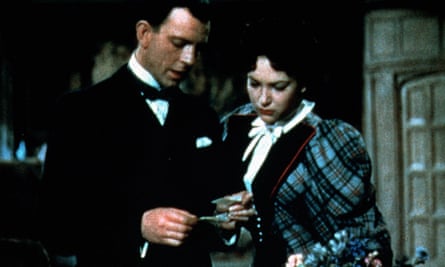My older brother took me to see the original, 1939 version of The Four Feathers when I was nine or 10. He had seen it several times already – had once sat through it twice when, thanks to the principle of continuous performance, it was possible to stay put in your seat and watch the programme all over again at no extra cost.
Films about war weren’t new to me. The Four Feathers stood out on two counts. Surprisingly, given its date, and in contrast to the usual British monochrome, it was in Technicolor; and the war it featured was older and more obscure than the familiar one, which had ended in 1945. In it, an army led by General Kitchener fought the Muslim revivalist leader, the Mahdi, and his followers in Sudan in the late 1890s.
Adapted from the Edwardian novel by AEW Mason, the film tells the story of Harry Faversham, a young army officer who resigns his commission just before his regiment leaves England for Egypt, fearing that he can never live up to his family’s brave military traditions. Three of his fellow officers send him white feathers; in self-disgust and self-pity he plucks a fourth from the fan of his disapproving fiancee. And then, in a heroic act of expiation, he follows his regiment up the Nile disguised as a mute native, and in one way and another saves the lives of the officers who have despised him.
The film was shot on location in Sudan, which in its day gave it a rare authenticity. Many scenes are memorable. I can still see the gunboat being towed up the rapids in the Nile; the Mahdi’s cavalry charge at Omdurman; Ralph Richardson, alone in the desert, losing his pith helmet and getting blinded by sunstroke (which means he can’t see his rescuer – yes, the man to whom he sent a white feather, the now-mute Harry Faversham!).
I suppose I must have understood that the film represented an older piece of history than The Cruel Sea and Above Us the Waves; the helmets and the uniforms clearly came from a different age. But did I recognise anything antique in the film’s patriotism and imperialism? In 1941, when the US Senate decided to look into the motives of its producer, Alexander Korda, a witness told the inquiry that the film depicted “the ancient British sport of knocking off the natives … it was all pip-pip and tawny port and a thin red line of heroes”. What would I have made of that, aged nine?
Dimly, I might have seen that the British in the film were slightly comic as well as noble. More likely, it was for me simply a thrilling story. In the mid-1950s we were all little matinee-warriors who knew our own side when we saw it. If someone had told us that the Mahdi was played by a white Scotsman (John Laurie) and that Britain should never have been in Sudan in the first place, we would have been puzzled by their objections.
For several reasons – biographical, social, patriotic – it was one of Winston Churchill’s favourite films. He had fought at Omdurman as a young lieutenant in the Lancers 40 years before. Later, after a rollercoaster career had left him hard up and without much of an obvious political future, he and Korda became friends. Korda, a Hungarian émigré with grand ambitions for the British film industry, hired Churchill as a screenwriter and paid him lavishly – in the early 1930s, £10,000 for two screenplays was excellent money.
As it turned out, neither of Churchill’s scripts was filmed, though the relationship was maintained. Churchill liked the cinema and possessed a cinematic imagination – images fill his speeches – and the two men shared a romantic appreciation of British history, out of which, arguably, came a strand of propaganda and a way of thinking about Britain/England that still endures.
The director John Fleet charts the course of their friendship in a revealing documentary, Churchill and the Movie Mogul, which has its premiere this month as part of the BFI Southbank’s Korda season. Well before a second world war had become a firm prospect in the public’s mind, a Korda film was stressing the need for preparedness. “I’m an Englishman and I can’t say one thing and mean another,” says the chicken-munching king (Charles Laughton) in The Private Life of Henry VIII (1933). “This little island is no match for all of Europe.” All a king can do is “build ships, ships and more ships … to leave it undone will cost us England”.
Churchill liked the film, with one reservation. It would have benefited, he wrote to Korda, from “a little less chicken-bone-chewing and a little more England-building”. That defect was remedied in Fire Over England (1937), another adaptation of an AEW Mason novel, in which Queen Elizabeth (Flora Robson) sends little fire ships to destroy the mighty Spanish Armada, and Laurence Olivier and his soon-to-be wife, Vivien Leigh, play the romantic leads. “How small we are, how wretched and defenceless,” says an Elizabethan courtier pondering England’s place on an Elizabethan globe, but there is Elizabeth herself at Tilbury: “I am come to live or die amongst you all …”

Olivier and Leigh were together again as Admiral Nelson and his mistress in Lady Hamilton (1941), which Korda made in Hollywood under the title That Hamilton Woman. Churchill, by now prime minister, is reported to have watched it eight or nine times, most famously with President Roosevelt aboard the new battleship Prince of Wales. Each time Nelson died, Churchill cried. A witness to the performance in the battleship’s wardroom noted that he took a handkerchief from his pocket “and wiped his eyes without shame”.
Churchill is thought to have strongly influenced – perhaps even written – the scene in which Nelson warns his admiralty bosses against any peace deal with Napoleon: “Believe me, gentlemen, he wants to be master of the world. You cannot make peace with dictators. You have to destroy them.” Churchill was by now realising a dream of his place in history. In a sense, he may have been crying at himself.
The US had yet to enter the war. Nobody, including Olivier and Leigh, doubted that the film was propaganda intended to soften American public attitudes towards entry on the British side. It was for that reason that the Senate had its inquiry into Korda’s motives and attitudes. That Hamilton Woman was, after all, an American production, and the US was officially both neutral and anti-imperial.
The message that came from Korda and Churchill was double-edged. On the one hand, it was defiant. Britain/England was small and alone (despite its extensive empire), but it had been small and alone before. It was its natural condition – from 1940 to Nelson, to Drake, to Henry VIII, to people in woad throwing rocks at the Roman soldiery: always defiant and always, ultimately, successful. One of Churchill’s film scripts concluded: “In all her wars England has always gained one battle – the last.” On the other hand, the Korda-Churchill message was a cry for help. “Look at little us, America, being brave once again.”
In 1942, Korda became the first film producer or director to receive a knighthood. After the war, he paid Churchill £50,000 (the equivalent of about £2m today) for the rights to A History of the English-Speaking Peoples, though no film was made.
Their joint idea of England unhelpfully persists.

